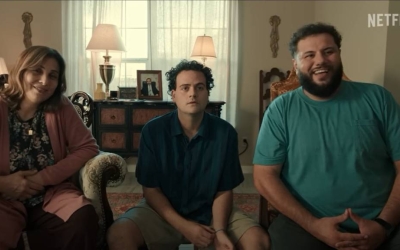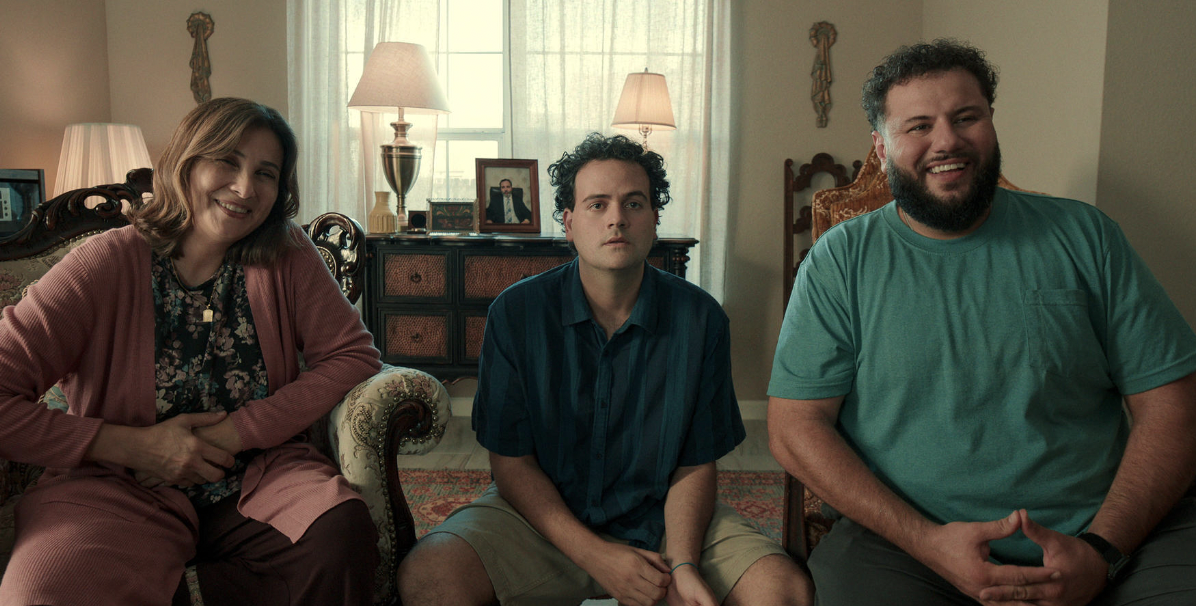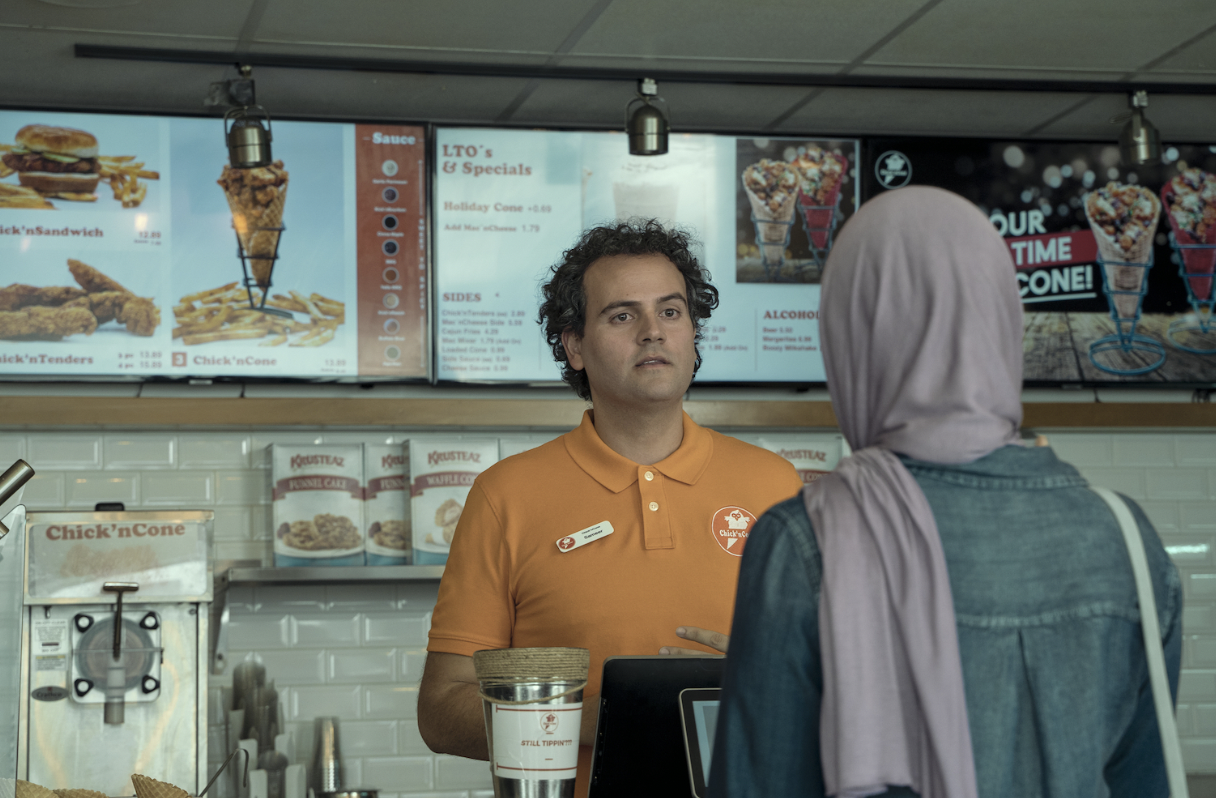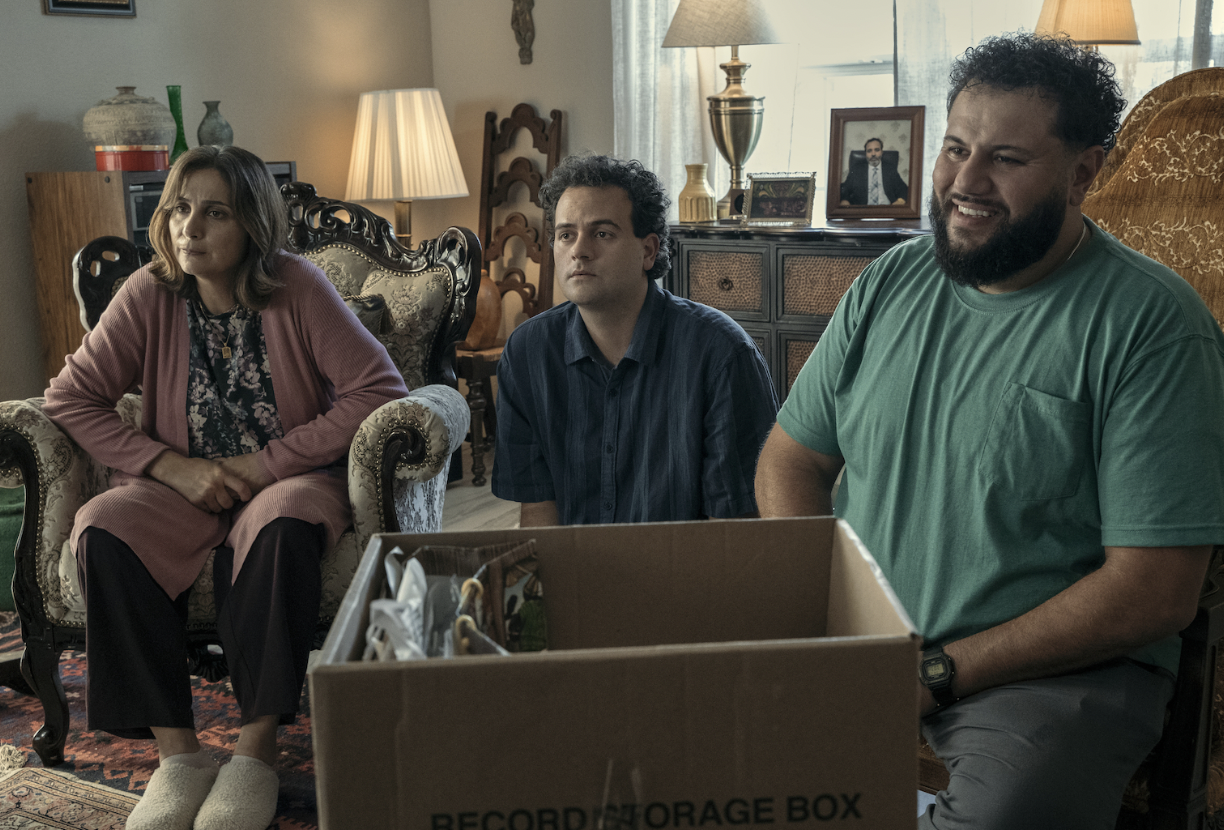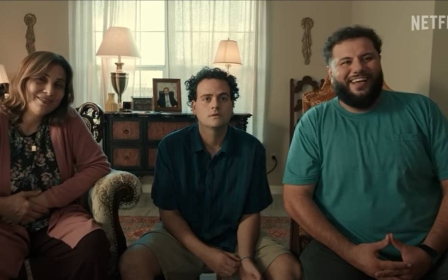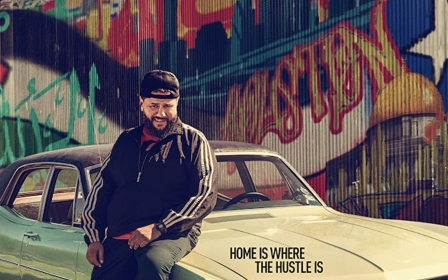How Netflix’s ‘Mo’ is advocating autism awareness in the Middle East
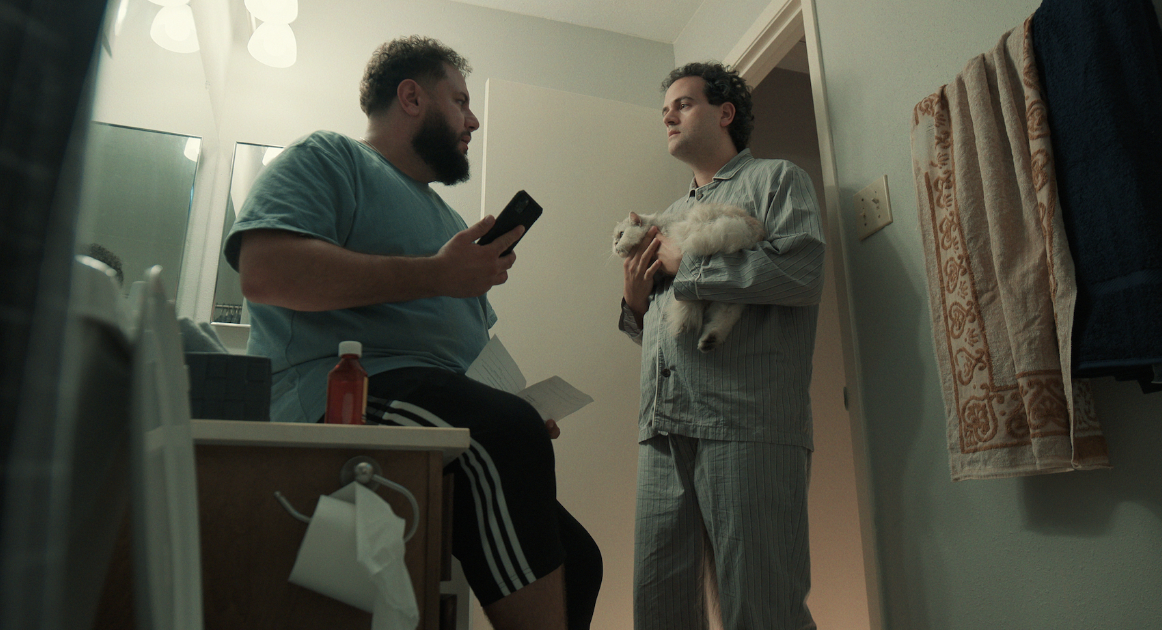
In the first few minutes of the critically acclaimed hit Netflix series Mo, Palestinian refugee Mo Najjar encounters his brother, Sameer, standing in his bedroom while holding his beloved cat, Crystal, and staring at Mo in silence.
“Why are you looking at me like that?” Mo asks.
“Working on my eye contact,” Sameer responds.
This initial conversation might seem odd to some but, for those who are impacted by autism, it resonates immediately.
Sameer is a character struggling to fit in due to an unaddressed condition (autism exacerbated by post-traumatic stress disorder). With a child-like innocence, he is hilariously honest, fixated on routines, and doing his best to fit in, creating a complex character that’s hard not to fall in love with.
The character has been praised online, by people who found him relatable and endearing.
“I got diagnosed with autism when I was very young,” one social media user wrote. “As I get older, I struggle to show people around me that I am still able to live my life. [Sameer] helped represent people like me in a better light.”
“My son has autism and I love how Sameer lives his life every day to be a better person. This character is opening the doors to acceptance in this world,” wrote another.
While receiving overwhelming praise for successfully bringing the Palestinian refugee experience to our TV screens, the Netflix series Mo should also be credited for its attempt to uncover the realities of living with autism within Arab households.
‘A touching portrayal’
Awareness of autism has started to improve in the Middle East over time, but the stigma still lingers. Globally, the World Health Organisation estimates that the prevalence of autism spectrum disorder (ASD) is one per 100 children.
Although one of the world’s most common disorders, ASD is less likely to be diagnosed in Arab communities, as parents lack awareness to recognise symptoms to seek diagnosis and treatment, making Sameer’s character in Mo paramount in bringing ASD awareness to Middle Eastern families.
Many Middle Eastern families lack the awareness to recognise ASD partly due to a significant shortage of trained professionals who work with autism. According to one report, around the region, there are also very long wait lists for treatment, and price assessments are also considerably expensive.
Omar Elba, the actor who plays Sameer, an Egyptian-American best known for co-starring alongside Tom Hanks in the movie A Hologram for the King, has received positive reviews for his authentic and nuanced portrayal of autism, most notably from the autistic community itself.
“As someone who worked with special needs children, Elba’s performance was incredible and done so well,” wrote one social media user.
“As a mom of a kid with special needs, [Elba’s] tremendous portrayal is so touching,” another said.
“Sameer [is] played to lovable perfection by Omar Elba,” wrote TV critic Laura Zornosa for Time.
Elba, who spoke exclusively with Middle East Eye, said that he did not anticipate the series would affect people so much nor the overwhelmingly positive reaction.
"If the critics and fans of the show are enjoying it, that’s great, but it’s really the comments from people directly impacted by autism that mean everything," he said.
Need for authenticity
In preparation for his role, Elba explained that “an enormous amount of work and research went into understanding the reality of that character’s level of autism, and [it was] something that I needed to handle with care in order to find the authenticity”.
This need for authenticity drove Elba to seek out an ASD behavioural therapist, with whom he worked meticulously for months, observing and researching a task that initially proved almost unattainable because of laws protecting patients.
He said that he eventually found a behavioural therapist who provided him with access to ASD clinics, paving the way for him to contribute to the writing of Sameer’s character and scenes.
“It was fortunate for Mo Amer [the series creator] and the writers because they wanted authenticity, and were curious to learn the autism info from my perspective and to know what I’d been gathering from my behavioural therapist,” Elba said.
Elba wrote a portion of the scenes, particularly the ones that included Sameer’s meltdown stages, from perseverance to fragmented speech and delayed echolalia (where an autistic individual memorises a phrase or even paragraph of speech - from a book or TV show, for example - and then repeats it after a period of time).
Taboos in the Middle East
Mo touches on the taboos of autism present in Arab culture. For one, Sameer, who is in his late 30s, is still undiagnosed. Yet he is seemingly aware that something is different about him, but isn’t sure, since none of the characters around him are acknowledging his autism to him or to each other.
“Hey mom, how come you never ask me about getting married?” Sameer asks his mother (played by actress Farah Bsieso). “I’m your oldest son, and you never ask me. Is it because something’s wrong with me?”
“No. no, no no no no. Don’t ever think like that. Mashallah you’re amazing there’s nothing wrong with you,” she responds.
Although this interaction might seem endearing to some, the powerful scene actually touches on the embedded shame that children with autism face in an Arab family.
Their ASD must be hidden, not embraced (hence the scene earlier on in the show where Auntie Samia says Sameer will bring his mother torment as he will be with her all his life).
“There are undeniable taboos about autism and mental health in many Arab households. Many people want to be viewed by others as genetically 'perfect', 'our genes and family lineage would never in a million years produce an autistic offspring', 'don’t you dare say your sister or brother is autistic, you’ll shame our entire family' - that sort of fear-based mentality,” explained Elba.
“I think this shame around autism exists because other people’s perceptions are distorted, harsh and non-accepting,” he added.
Challenging normal
Through his acting, Elba has sought to challenge the conception of normal.
“Pretending that mental health issues don’t exist constricts the already distorted definition of 'normal' by others, which, in turn, fuels the level of pretence to meet this narrow, unrealistic and exhausting standard of 'normal' and vice versa - it’s an unconscious vicious cycle.
"I love my Arab people but this shame around mental health is something we really need to address and dissolve,” he said.
'There are undeniable taboos about autism and mental health in many Arab households'
- Omar Elba, actor
This is something he hopes to tackle in season two of Mo: “I have faith that our show will have the level of depth and courage to be able to do so. To be clear, this taboo is not exclusive to Arab culture, and so addressing it in season two of the show would be very powerful as this emotional plight would reach various cultures universally.”
Viewers of the show are keen to learn more about Sameer’s character specifically.
We’re left asking questions about whether he will find love, how will he interact with his refugee identity, and if his family will finally acknowledge that he is, in fact, on the spectrum.
Elba believes he would be best fit to write these potential scenes.
“I would actually love to write for Sameer. Ultimately, that’s Mo’s call to make,” he said.
Advocacy for autism
Elba’s belief that autistic people can live fulfilling lives is the main theme of his advocacy, and what he tries to fight for, even outside playing his character, Sameer. “The belief that autistic people cannot live fulfilling lives is a result of neurotypical discrimination against the unfamiliar,” he said.
“Albert Einstein was autistic and, as a young child in school, was thought by his teachers to be slow and not someone who would live a fulfilling life. This is the guy who revolutionised our understanding of space, time and gravity, and yet he was dismissed by his teachers as inadequate,” said Elba.
'Autism is a diagnosis still shrouded in mystery; we have no idea what the autism community is capable of'
- Omar Elba, actor
He understands, however, that not everyone has ASD like Einstein, and there are individuals on different levels of the spectrum.
“How are their lives fulfilling? What are their contributions? We don’t know yet. Therefore, we cannot dismiss or limit them.”
There is a lot we do not know about autism and its effects, therefore, Elba believes we have the potential to learn a lot from autistic people if we pay close attention.
“Autism is a diagnosis still shrouded in mystery; we have no idea what the autism community is capable of,” he said.
“We may soon discover, if we pay close attention, that they can provide access to certain wisdom inaccessible to the neurotypical mind. Stay tuned - this may be the case with Sameer."
This article is available in French on Middle East Eye French edition.
Middle East Eye propose une couverture et une analyse indépendantes et incomparables du Moyen-Orient, de l’Afrique du Nord et d’autres régions du monde. Pour en savoir plus sur la reprise de ce contenu et les frais qui s’appliquent, veuillez remplir ce formulaire [en anglais]. Pour en savoir plus sur MEE, cliquez ici [en anglais].


